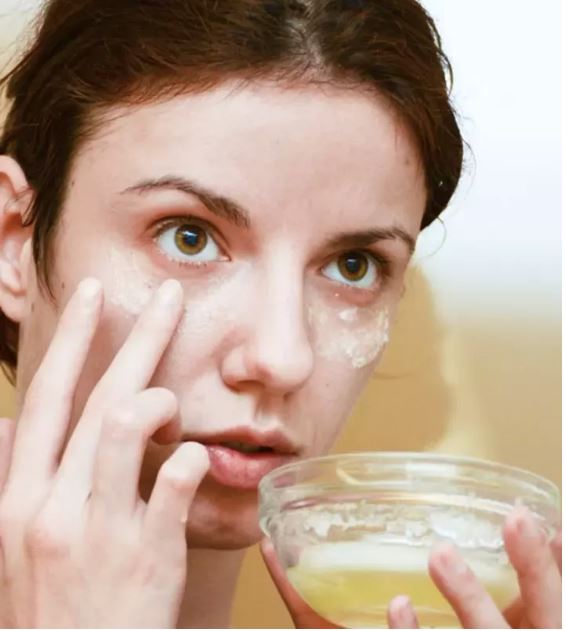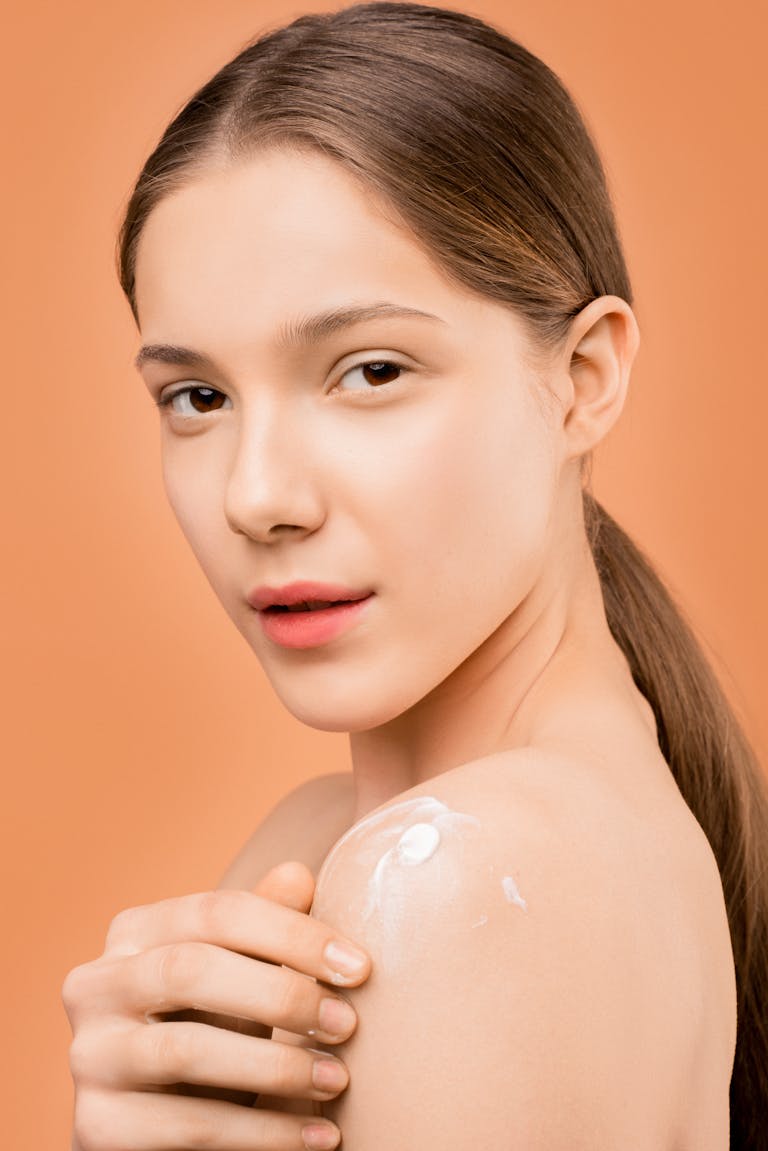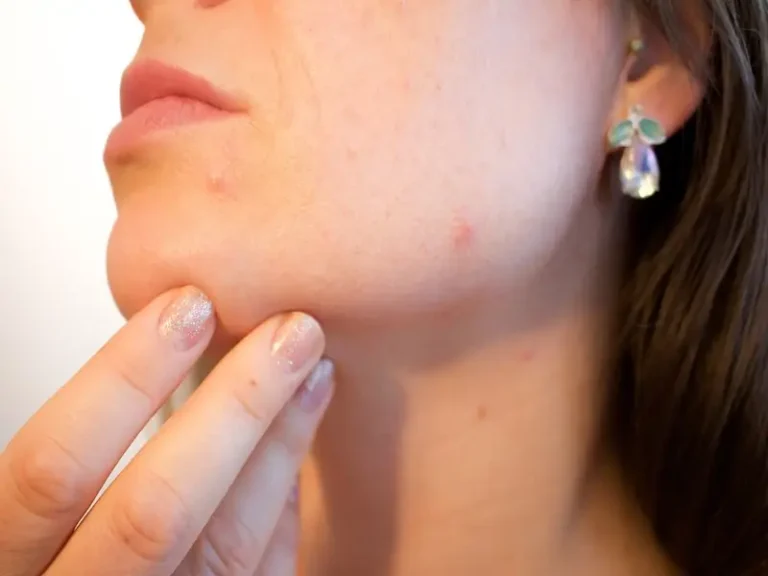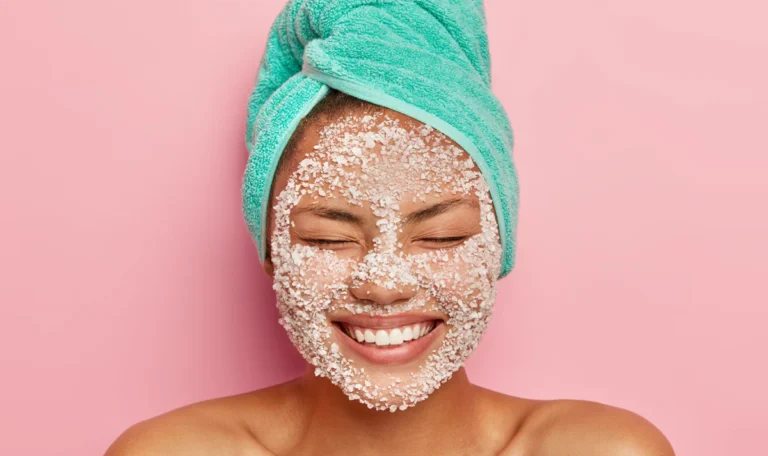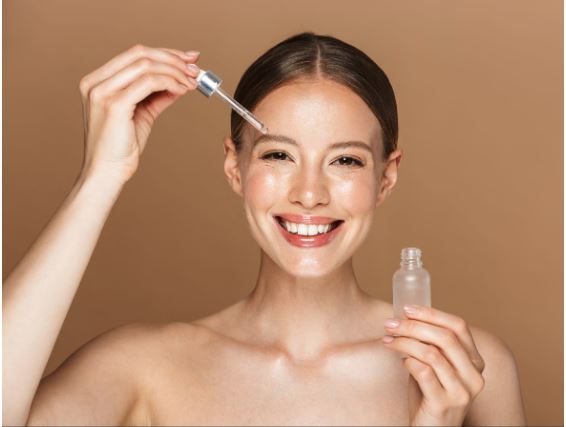10 Essential Skincare Tips for Effective Acne Control
Managing acne can be a challenge, but with the right approach, you can take control of your skin. Here are 25 clear skincare tips that are easy to follow and designed to help you tackle breakouts effectively. From simple daily habits to product recommendations, these tips aim to empower you on your path to clearer skin.
Importance of Regular Cleansing
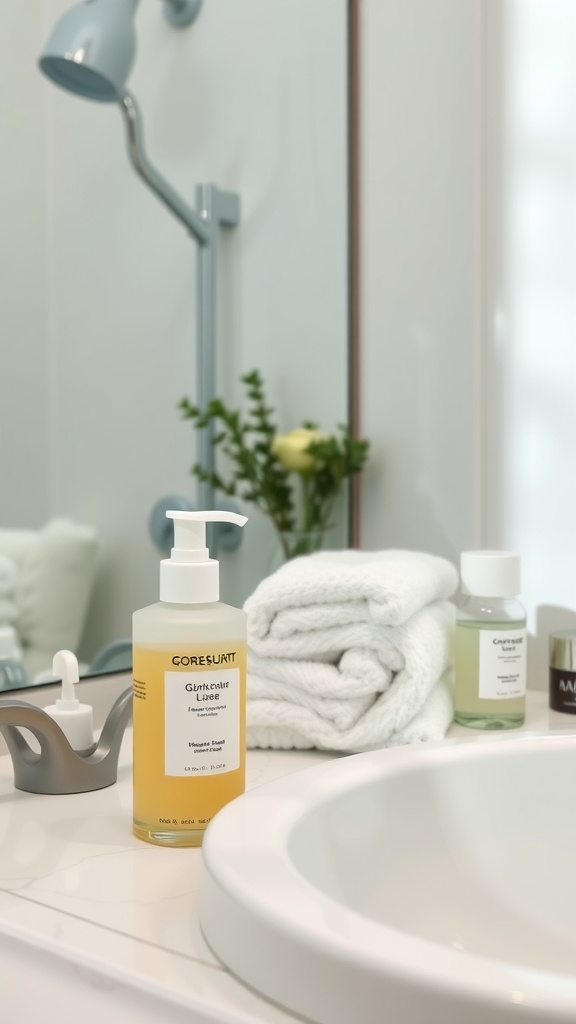
Keeping your skin clean is a simple yet effective way to manage acne. The image shows a bright bathroom with skincare products neatly arranged. You can see a cleansing solution, some fresh towels, and a few other skincare items that suggest a routine focused on cleanliness.
Regular cleansing helps remove dirt, oil, and impurities that can clog pores. It’s a key step in preventing breakouts. When you wash your face daily, you’re giving your skin a chance to breathe and stay clear.
If you stick to a routine, you can notice changes over time. Using the right products, like gentle cleansers, can make a difference. It’s about making cleansing a habit, just like brushing your teeth.
Dietary Impact on Skin Health
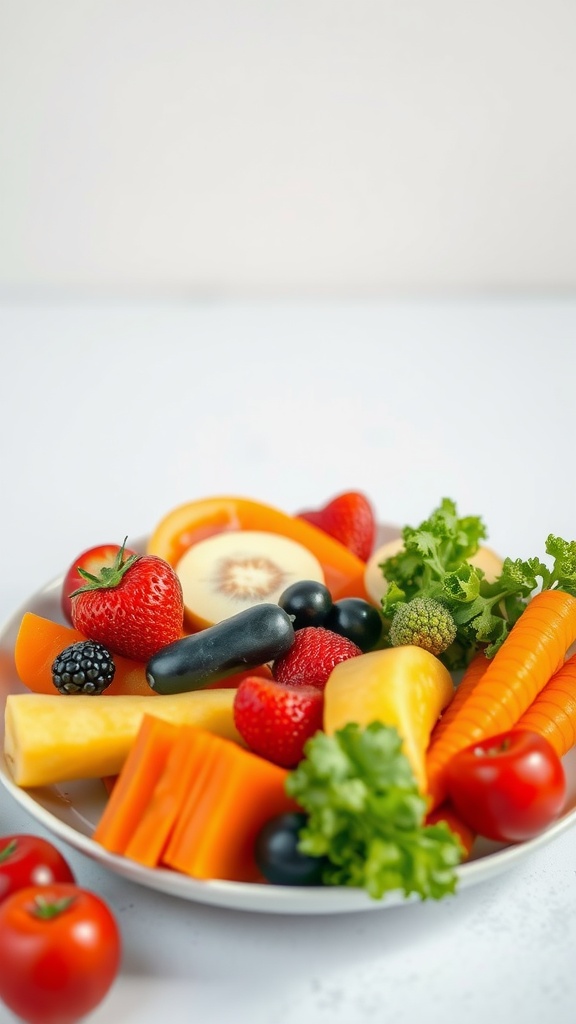
The connection between what we eat and how our skin looks is significant. A diet rich in fruits and vegetables can greatly impact acne and overall skin health. The image shows a colorful plate filled with fresh produce like strawberries, carrots, and leafy greens. This vibrant selection is not only appealing but also packed with nutrients that support clear skin.
Fruits and vegetables provide antioxidants, vitamins, and minerals essential for skin repair and protection. For example, strawberries and blackberries are high in vitamin C, which helps with collagen production. Carrots are loaded with beta-carotene, promoting skin health and reducing inflammation.
Incorporating these foods into your daily meals can be a fun and tasty way to support your skincare routine. Consider adding some chopped carrots and leafy greens to your salads or blending fruits into smoothies. The idea is to enjoy a variety of colors and flavors, making your diet not only nutritious but also delightful.
The Role of Sunscreen in Acne Management
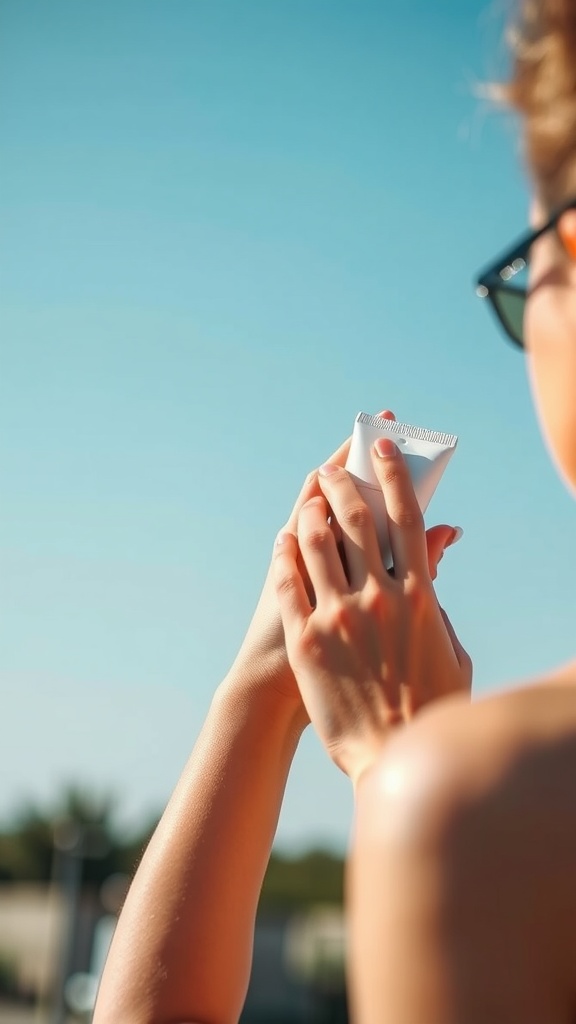
Using sunscreen is key for everyone, especially if you’re dealing with acne. The image shows a person applying sunscreen, ready to shield their skin from harmful UV rays. Sunscreen not only protects your skin from sun damage but also helps maintain an even skin tone.
When sun exposure occurs, it can trigger inflammation in acne-prone skin. This can worsen your breakouts or cause new ones to emerge. Sunscreen acts as a barrier, reducing irritation caused by UV rays. It’s important to choose a non-comedogenic sunscreen, which means it won’t clog your pores.
Applying sunscreen daily can help in the healing process of existing acne scars. Over time, consistent use can result in clearer, healthier-looking skin. Remember, even on cloudy days, UV rays can still impact your skin. So, make sunscreen a part of your daily skincare routine!
Exfoliation Techniques for Clear Skin

Exfoliation is a key step in maintaining clear skin. It helps to remove dead skin cells, unclog pores, and promote cell turnover. In the image, we see a hand holding a cotton pad, which is often used with exfoliating toners or acids. This simple action is a great reminder of how easy it can be to incorporate exfoliation into your routine.
There are a few types of exfoliation to consider. Physical exfoliation involves scrubs or brushes that manually slough off dead skin. On the other hand, chemical exfoliation uses acids, such as AHAs and BHAs, to dissolve dead skin. Finding the right method for your skin type is crucial.
Using an exfoliating product regularly can make a noticeable difference. Start with once or twice a week to see how your skin reacts. If it feels good, you can gradually increase frequency. Remember to follow up with a good moisturizer to keep your skin hydrated!
Benefits of Non-comedogenic Products
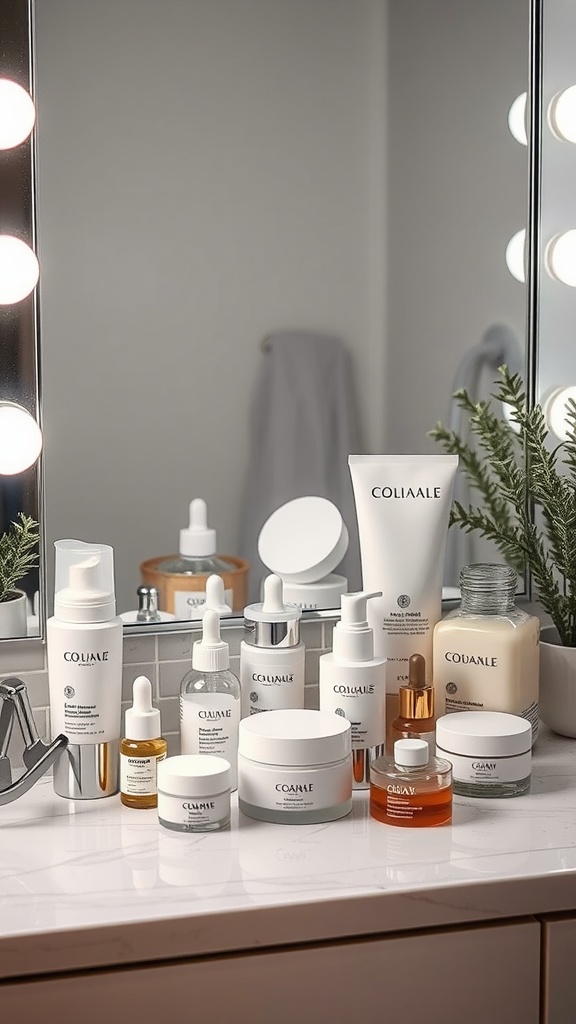
Non-comedogenic products are a great choice for anyone dealing with acne. These products are specially formulated to avoid clogging pores, which is a major cause of breakouts. By using non-comedogenic skincare, you can help keep your skin clear and healthy.
The image shows a variety of skincare items on a countertop. Each product promises to be gentle on the skin while offering different benefits. This collection emphasizes the importance of choosing the right products for your skin type. When you see ‘non-comedogenic’ on a label, you can feel confident that it’s designed to be acne-friendly.
Using non-comedogenic products is particularly important if you have oily or combination skin. They provide moisture without adding excess oil. This balance is key in maintaining clear skin while still keeping it hydrated. The right products can help you achieve a fresh, healthy look without the worry of breakouts.
Understanding Acne Triggers
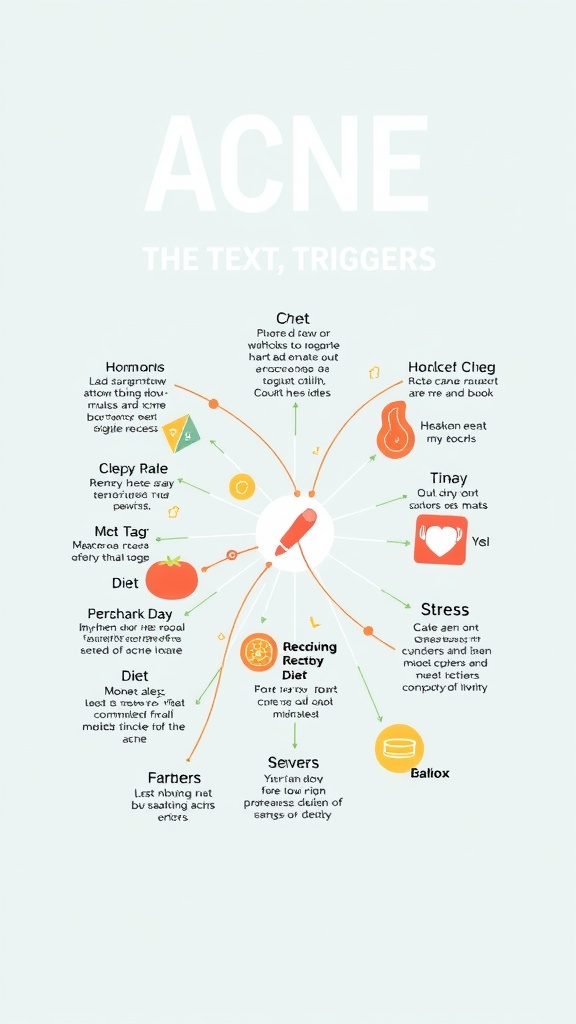
Acne can be frustrating, and knowing what causes it is half the battle. The image provides a visual breakdown of various acne triggers, making it easier to understand what might be affecting your skin.
Hormones play a significant role in acne development. Changes, especially during puberty or monthly cycles, can lead to breakouts. Keeping track of these hormonal changes can help you anticipate potential flare-ups.
Your diet also has a big impact. Certain foods, like those high in sugars or dairy, can worsen acne for some people. It’s wise to pay attention to how your skin reacts after eating specific items.
Stress is another major factor. When you feel stressed, your body produces more oil, which can lead to clogged pores. Finding ways to manage stress, like exercise or meditation, can make a difference for your skin.
Lastly, don’t forget about skincare routines. Using products that are too harsh can irritate your skin and exacerbate acne. Gentle cleansers and non-comedogenic products are usually better options.
Incorporating Active Ingredients
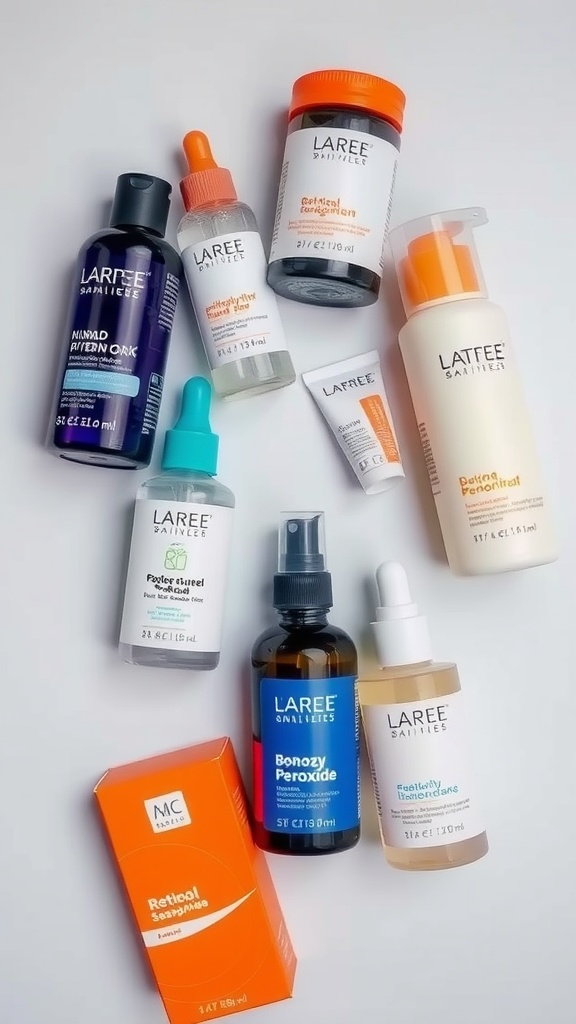
When it comes to skincare, active ingredients can make a big difference, especially for acne control. The image shows a variety of products, each likely packed with effective ingredients to tackle acne and improve skin health.
Take a closer look at those labels! Products like retinol and benzoyl peroxide are well-known for their acne-fighting properties. Retinol helps with cell turnover, while benzoyl peroxide kills acne-causing bacteria. These ingredients can help clear existing breakouts and prevent new ones from forming.
Don’t overlook serums and treatments like the ones in the image. They often contain a higher concentration of active ingredients, making them more potent. Layering these products correctly can boost your skincare routine.
It’s important to introduce these actives slowly, especially if you have sensitive skin. Start with a patch test and gradually increase usage as your skin adjusts. Finding the right balance can lead to clearer, healthier skin.
Choosing the Right Moisturizer
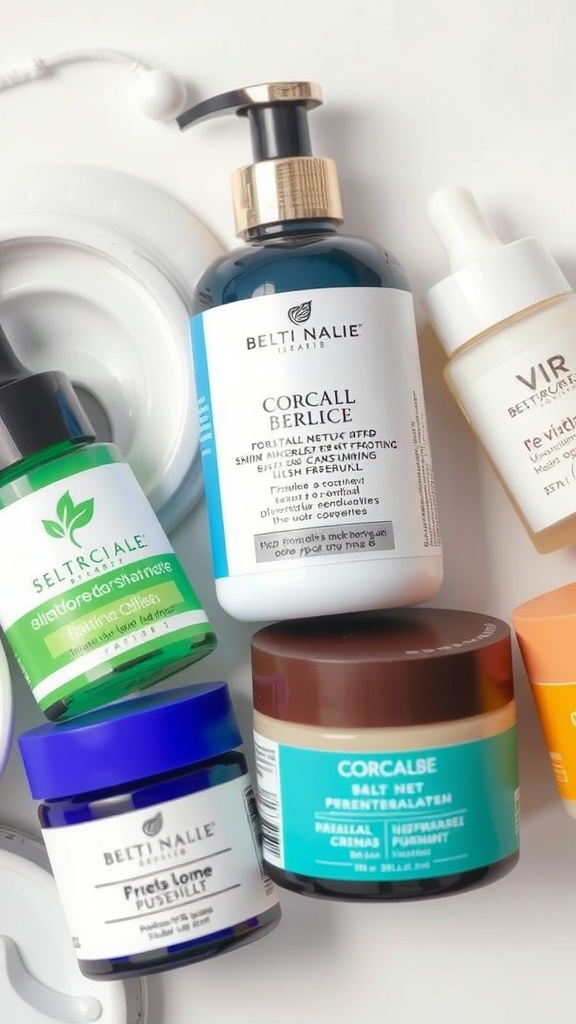
Finding the perfect moisturizer can make a big difference in your skincare routine, especially when it comes to acne control. The right product not only hydrates but also supports your skin’s healing process.
The image shows a selection of moisturizers, each designed for different skin needs. From lightweight gels to richer creams, there’s something for everyone. Look for non-comedogenic options which won’t clog your pores. Ingredients like hyaluronic acid and glycerin can be great for hydration without the heaviness.
If you have acne-prone skin, consider moisturizers that contain soothing ingredients like aloe vera or chamomile. They can help calm inflammation and redness. Remember, even oily skin needs moisture, so don’t skip this step!
When choosing a moisturizer, it’s also helpful to consider your skin type. If you have oily skin, you might prefer a gel-based formula, while dry skin may benefit from a creamier texture. Experiment a little to see what feels best for you.
Hydration and Its Effects on Skin
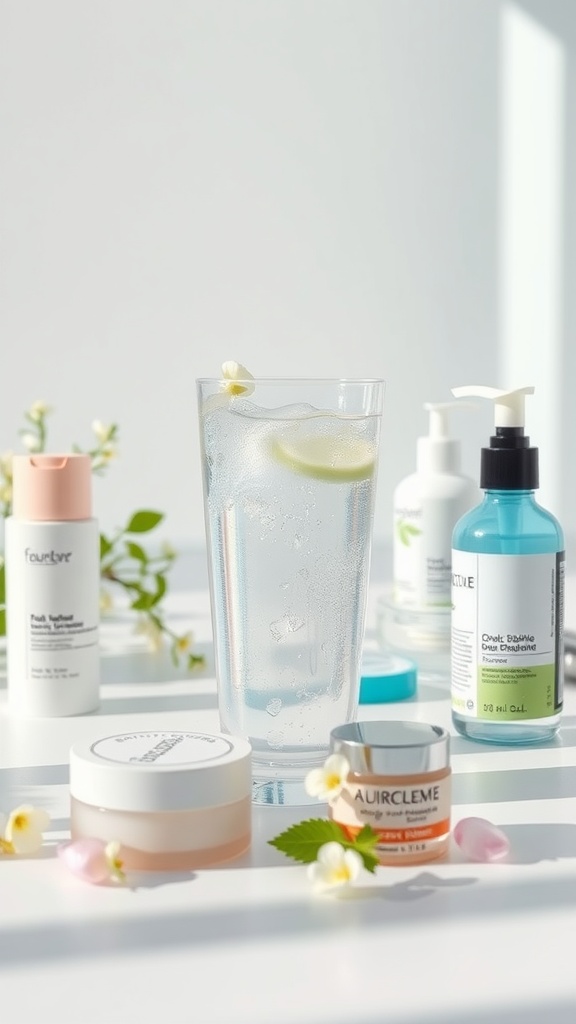
Hydration plays a key role in maintaining healthy skin. The image shows a refreshing glass of water, surrounded by various skincare products. This setup highlights how essential water is for our skin.
When your body is well-hydrated, your skin is more likely to look plump and radiant. Water helps to flush out toxins and keeps your skin’s moisture barrier intact. This is especially important for those dealing with acne, as proper hydration can reduce the severity of breakouts.
In addition to drinking water, using hydrating skincare products can enhance your skin’s appearance. The products in the image, likely packed with beneficial ingredients, can complement your hydration routine. Pairing these products with a good amount of water can lead to clearer, healthier skin.
Stress Management for Clear Complexion

Managing stress is key to achieving clear skin. When we experience stress, our body releases hormones like cortisol, which can lead to increased oil production and breakouts. Finding ways to relax can make a big difference.
The image shows someone engaged in yoga outdoors, hands raised in a prayer position. This peaceful setting emphasizes the importance of incorporating calming activities into our daily routine. Yoga is a fantastic way to relieve stress while also promoting skin health.
Consider adding practices like meditation, deep breathing, or even a simple walk in nature to your schedule. These activities not only help clear your mind but can also improve your skin’s appearance by reducing stress-related flare-ups.
